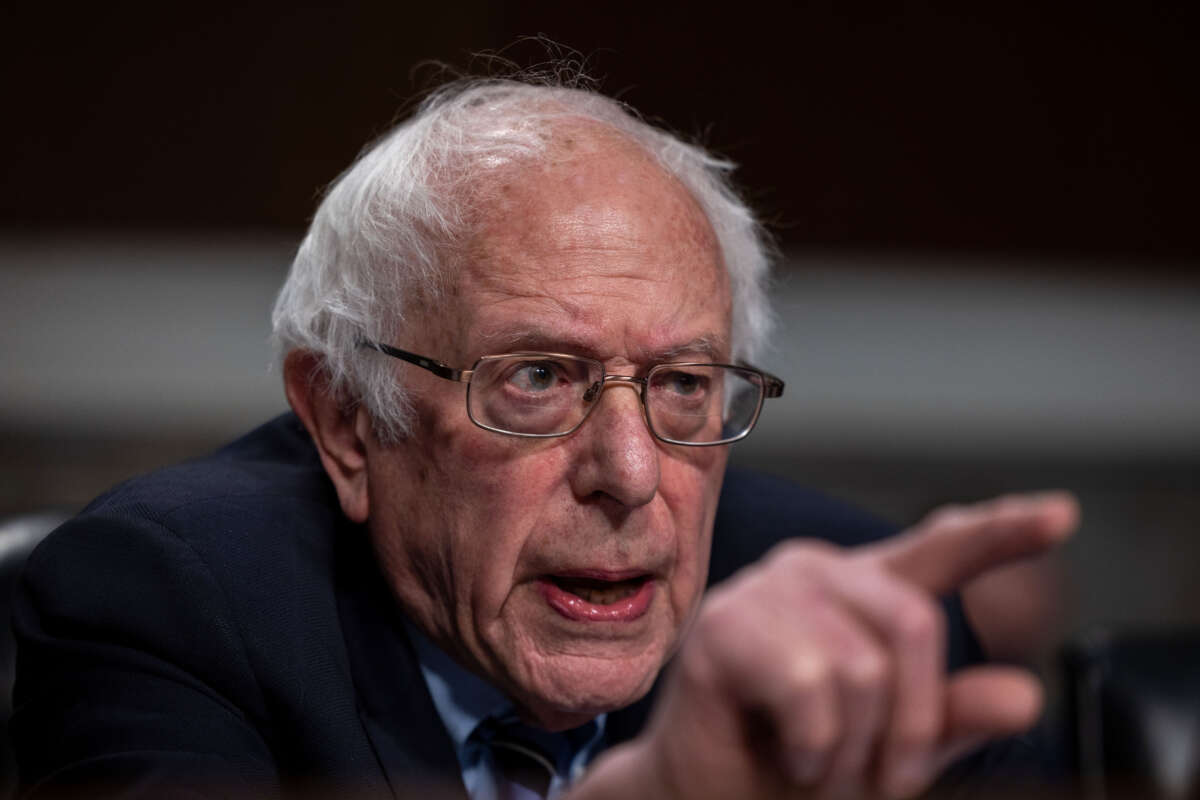Truthout is an indispensable resource for activists, movement leaders and workers everywhere. Please make this work possible with a quick donation.
Every single Democratic member of the Senate Health, Education, Labor and Pensions (HELP) Committee has signed off on an open letter to the CEOs of three major pharmaceutical companies, urging them to appear before the committee early next year to discuss the disturbingly high prices of prescription drugs.
Letters were sent to Johnson & Johnson CEO Joaquin Duato, Merck CEO Robert Davis and Bristol Myers Squibb CEO Chris Boerner. It was signed by committee chair Sen. Bernie Sanders (I-Vermont), as well as Senators Patty Murray (D-Washington), Bob Casey (D-Pennsylvania), Tammy Baldwin (D-Wisconsin), Chris Murphy (D-Connecticut), Tim Kaine (D-Virginia), Maggie Hassan (D-New Hampshire), Tina Smith (D-Minnesota), Ben Ray Luján (D-New Mexico), John Hickenlooper (D-Colorado), and Ed Markey (D-Massachusetts).
A hearing on the issue, which will be called “Why Does the United States Pay, By Far, The Highest Prices In The World For Prescription Drugs,” will take place on January 25, 2024, the letters informed the CEOs.
Sanders pointedly explained that the American people wanted answers to some key questions.
“Why does the United States pay, by far, the highest prices in the world for prescription drugs?” Sanders said, according to a press release announcing the letters. “How does it happen that one out of four Americans cannot afford to take the medicine their doctors prescribe while prescription drug companies make billions in profits and pay their executives exorbitant compensation packages? How does it happen that the median price of new prescription drugs in the United States was over $220,000 last year, while the pharmaceutical industry spent billions on stock buybacks and dividends?”
The HELP Committee also noted that the companies that received the letters charged exorbitant prices despite making huge profits and paying enormous salaries to their CEOs. According to the press release, Johnson & Johnson made a $17.9 billion profit, with Duato earning more than $27 million; Merck made $14.5 billion in profits, with Davis making $52.5 million in earnings; and Bristol Myers Squibb made $6.3 billion in profits, with Boerner earning $41.4 million
“The American people have a right to know why it is that they pay, by far, the highest prices in the world for prescription drugs while the pharmaceutical industry in the U.S. makes hundreds of billions in profits and pays their CEOs tens of millions of dollars in compensation,” Sanders said.
The U.S. does indeed pay more than any other Organization for Economic Cooperation and Development (OECD) member country for prescription drug prices. According to figures compiled by Statista, the U.S. paid 3.32 times more than Canada does for drugs, 3.6 times more than Mexico does, 3.81 times more than the United Kingdom, and 4.67 times more than Australia.
The Biden administration has started the process of negotiating a small handful of prescription drug prices. Starting in February, the prices of 10 prescription drugs will be negotiated between Medicare and drug companies. However, Americans shouldn’t expect prices to change right away — new prices won’t be implemented until at least two years after negotiations formally begin.
Most Americans support the process of negotiating drug prices, with an Associated Press/NORC poll in September indicating that more than three-quarters of U.S. adults (76 percent) back the idea. Only 6 percent said they were opposed to it.
A terrifying moment. We appeal for your support.
In the last weeks, we have witnessed an authoritarian assault on communities in Minnesota and across the nation.
The need for truthful, grassroots reporting is urgent at this cataclysmic historical moment. Yet, Trump-aligned billionaires and other allies have taken over many legacy media outlets — the culmination of a decades-long campaign to place control of the narrative into the hands of the political right.
We refuse to let Trump’s blatant propaganda machine go unchecked. Untethered to corporate ownership or advertisers, Truthout remains fearless in our reporting and our determination to use journalism as a tool for justice.
But we need your help just to fund our basic expenses. Over 80 percent of Truthout’s funding comes from small individual donations from our community of readers, and over a third of our total budget is supported by recurring monthly donors.
Truthout has launched a fundraiser, and we have a goal to add 231 new monthly donors in the next 48 hours. Whether you can make a small monthly donation or a larger one-time gift, Truthout only works with your support.
